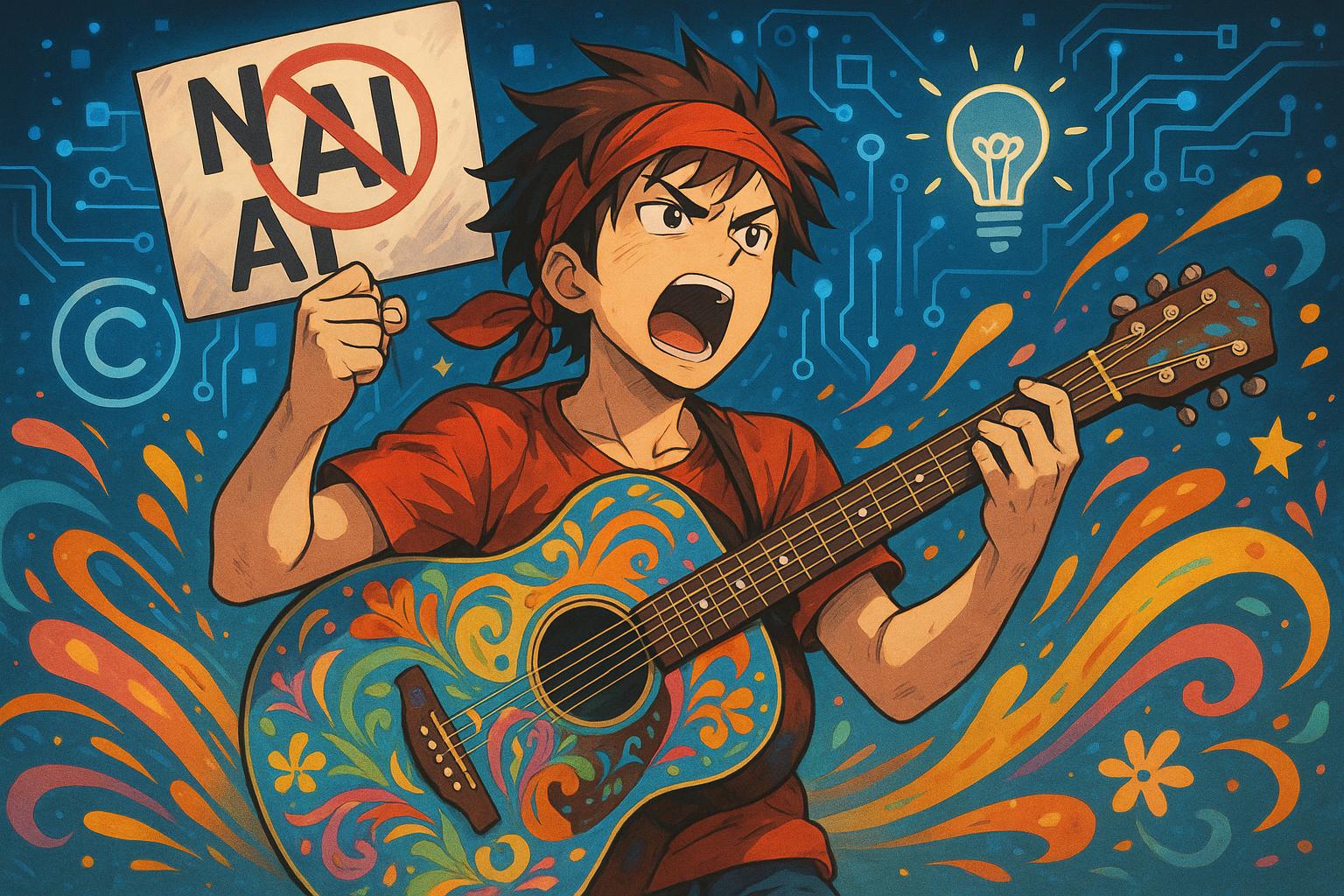Sir Elton John has launched a vociferous critique of the UK government's proposed copyright reforms, labelling them "absolute losers" for their failure to protect the rights of creative professionals. His comments were made during a passionate interview with the BBC, where he condemned the controversial Data (Use and Access) Bill, which would enable AI companies to use artists' work without their consent unless creators actively opt out. This legislative shift has sparked widespread concern among artists, who argue it compromises their livelihoods.
Feeling "incredibly betrayed" by the Labour government's position, John declared, “It’s criminal,” warning that the bill threatens to strip young artists of both their creative legacy and financial viability. He emphasised the essential emotional and human qualities inherent in art, asserting that artificial intelligence lacks the soul and passion that fuel true creativity. This sentiment resonates throughout the creative community as artists grapple with a rapidly changing landscape where technology encroaches upon artistic expression.
The ongoing debate about copyright reform raises critical questions regarding the relationship between creativity and technological advancement. Central to the controversy is whether AI firms should be mandated to secure permission before using copyrighted materials for their training datasets. While the House of Lords had voted to amend the bill to require such permissions, this protective measure was ultimately rebuffed by the Commons, raising alarm about the implications for original content creators.
John, alongside over 400 notable British artists—including icons such as Sir Paul McCartney and Ed Sheeran—has joined a growing movement opposing the government's stance. These artists highlight a significant trend: as technological advancements progress, many sectors, including the creative industry, face unprecedented challenges. According to UK Music’s chief executive, this legislation threatens to undermine the nation’s status as a creative powerhouse, drawing an unsettling parallel to environmental crises faced by vulnerable nations like the Maldives.
From an economic perspective, government officials defend the proposed reforms by asserting that they could galvanise technological innovation, potentially boosting the economy by an estimated £10 billion over the next decade. Critics, however, argue that this approach risks treating creative work as raw material to be exploited, rather than as protected intellectual property deserving of respect and compensation.
Globally, the ramifications of the UK’s approach could be significant, potentially influencing how copyright law evolves in other nations. While China continues to advance in technology, countries around the world grapple with the susceptible balance between integrating AI and upholding creators’ rights. The European Union has implemented stricter protections for creators, and the United States is still debating fair use in the context of AI training. As such, there is a growing concern that the UK may risk falling behind in safeguarding the rights of creators amidst a rapidly evolving digital landscape.
In response to the imminent risk posed by these legislative changes, John has indicated the potential for legal action should the government press ahead with the current framework. Across the creative sector, artists and advocates are mobilising public support, with calls for a reconsideration of copyright measures gaining momentum. A campaign initiated by creators, dubbed "Make it Fair," has highlighted the dangers of the current proposals. As a demonstration, over 1,000 musicians released a silent album, aptly titled "Is This What We Want?" to underscore their plight.
As the government reviews stakeholder feedback, the ongoing tension between artistic integrity and technological progress highlights the complexities of the modern creative landscape. Just as AI is reshaping industries such as healthcare, its impact on creative fields remains fraught with contention. The battle John has ignited may well determine whether the unique value of human creativity is preserved in an increasingly AI-driven world.
Reference Map
- Paragraph 1: [1], [2]
- Paragraph 2: [1], [6]
- Paragraph 3: [1], [3]
- Paragraph 4: [2], [4]
- Paragraph 5: [5], [6]
- Paragraph 6: [3], [4]
- Paragraph 7: [6], [7]
- Paragraph 8: [1], [5]
Source: Noah Wire Services
